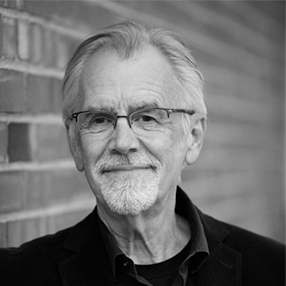The river rose wildly every seventh spring
or so, and down the hatch went the town,
just a floating hat box or two, a cradle,
a cellar door like an ark to float us back
into the story of how we drown but never
for good, or long. How the ornate numbers
of the bank clock filled with flood, how
we scraped minute by minute the mud
from the hours and days until the gears
of time started to catch and count again.
Calamity is how the story goes, how
we built the books of the Bible. Not
the one for church, but the one the gods
of weather inscribed into our shoulder
blades and jawbones to grant them grit
enough to work the dumb flour of day
into bread and breath again. The world
has a habit of ending, every grandmother
and father knew well enough never to say,
so deeply was it stained into the brick
and mind. We live in the meantime
is how I remember the length of twilight
and late summer cicadas grinding the air
into what seemed like unholy racket to us,
but for them was the world’s only music.
Copyright © 2021 by Max Garland. Originally published in Poem-a-Day on November 11, 2021, by the Academy of American Poets.
“My grandparents loved to remember the drowning of our western Kentucky town in the 1937 Ohio River flood. I inherited the newspaper images—a Jersey cow on a second story balcony, people rowing down Broadway. That flood became intermingled with the one I learned about in church, Noah’s flood. In fact, history and childhood religion more or less flowed together in an ongoing story of calamity and grit. But honestly, I probably wrote the poem because I liked the sound of the words ‘the river rose wildly’ and wanted to keep that sound going as long as I could.”
—Max Garland

